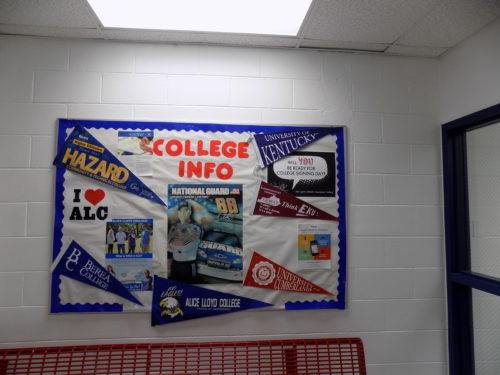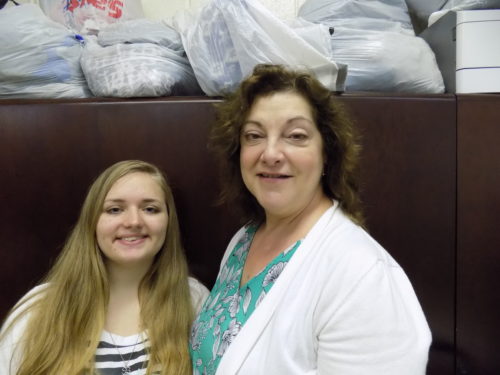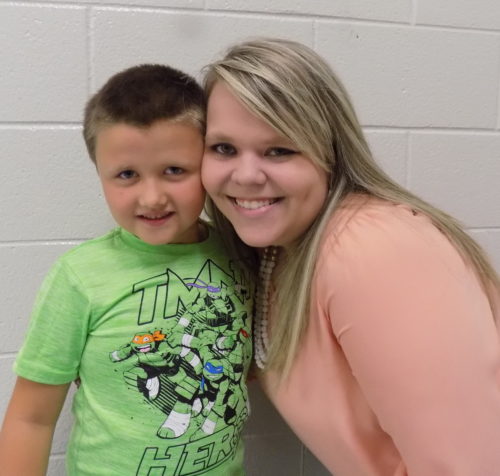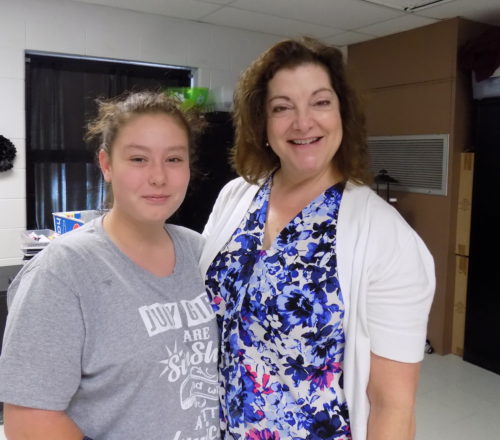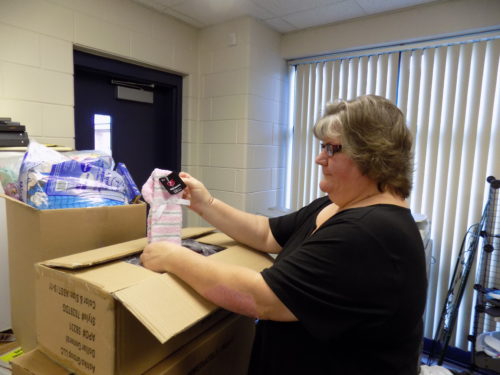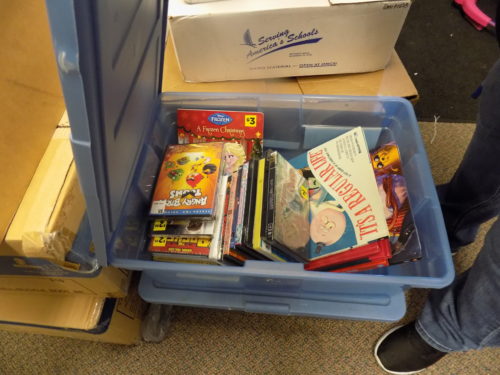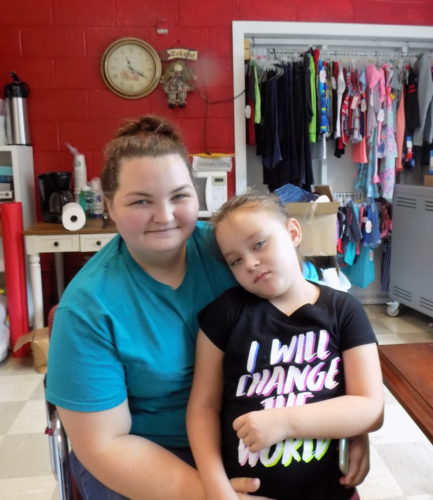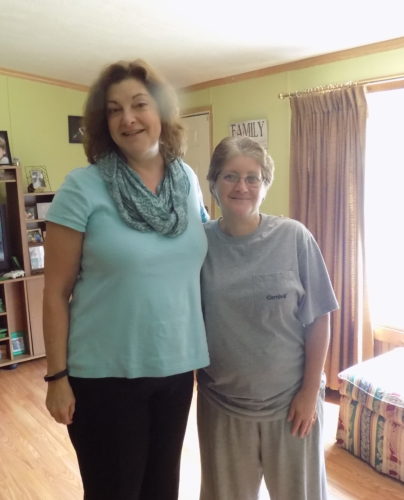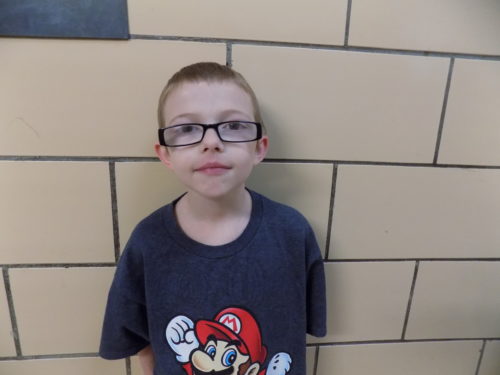Emmalena Elementary School is located on State Highway 550 in the western part of Knott County, Kentucky just west of the community of Clear Creek.
“The community of Clear Creek was the site of a 1970s women’s occupation and protest against strip and surface mining, especially the practice that allowed coal operators to tear up private land to reach underground minerals,” explains Renée Kube, Children Incorporated’s Director of U.S. Programs.
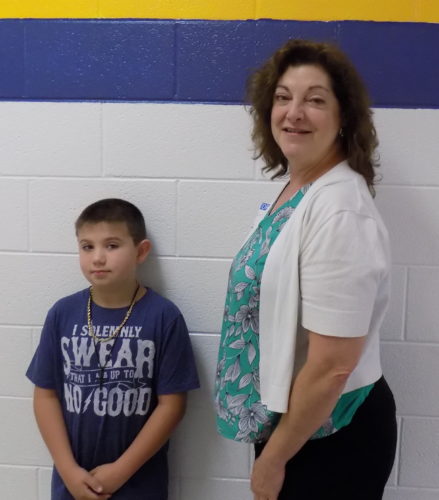
Renée is pictured with one of our sponsored children at Emmalena Elementary School.
“Some small, independent operators had opened mines, made quick profits, and then left, leaving the community to cope with damaged land and polluted water.”
“Today the community feels loyalty to the operators who ran good mines but still mourns the loss of good jobs while hoping and looking ahead to the future,” said Renée.
Leaving home to find work
On a trip to Knott County to visit our affiliated project Emmalena Elementary, Renée met with our volunteer coordinator at the school, Pam.
Pam told Renée that because of the mine closures, parents were forced to leave Clear Creek to find work outside of town. As a result, the school had shown a significant decline in enrollment in recent years.
Of those parents who were able to stay in Clear Creek, some found jobs in the county seat or by commuting to Hazard for work daily. Others are self-employed at a variety of work from fixing cars to cutting wood.
Unfortunately, many of these jobs are low-paying, and the community has a high poverty rate — 89% of students receive free or reduced lunch through the National School Lunch Program.
Pam feels fortunate to have other additional resources to help her find inexpensive items for the many children at her school that are living in poverty.
Shopping for kids in need
Emmalena Elementary School educates 196 children from kindergarten to eighth grade. During their meeting, Pam told Renée that she likes to take advantage of Back-to-School sales in July at stores in nearby Hazard so that she can maximize the number of clothes, shoes, book bags and school supplies she can purchase with funds provided by our sponsors.
Pam makes another big shopping trip in December for winter clothing including warm outfits, coats and snow boots for sponsored children who would otherwise go without these important items in the cold winter months.
Pam feels fortunate to have other additional resources to help her find inexpensive items for the many children at her school that are living in poverty. One such resource is the Christian Appalachian Project, a warehouse of free overstock and discontinued or imperfect merchandise offered at a low cost. She also works collaboratively with the county extension service and health department.
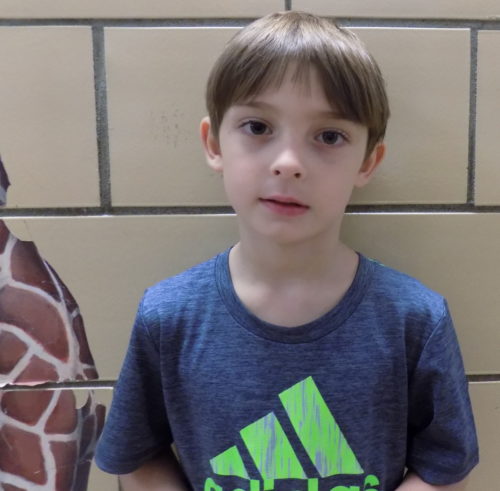
Thanks to their sponsors, children receive items such as clothing, school supplies and book bags.
Gratitude for our sponsors
During her visit, Pam arranged for Renée to meet a mom of two children in our program, Lydia.* Lydia is a teacher’s aide at Emmalena Elementary School. Her husband is disabled, and they are both hard-pressed to provide for their kids.
“Lydia expressed to me how grateful she was for the help she receives from her children’s sponsors. It makes a massive difference for the whole family,” said Renée.
Renée also met a special boy named Michael.* Michael was enrolled in our program last May and is still unsponsored. He is in first grade and likes science.
Michael, his sister and his brother are being raised by their grandmother, who is a homemaker. She is raising them on a limited amount of public assistance that includes kinship care, which gives aid to people who are raising related children, keeping them out of the foster care system.
“Michael’s siblings are currently sponsored through our program. Michael is hoping that he will also have the opportunity to have a sponsor soon because he realizes how much it helps his grandmother and his whole family,” said Renée.
*Names changed to protect the individuals.
***
How do I sponsor a child in Kentucky?
You can sponsor a child in Kentucky in one of two ways: call our office at 1-800-538-5381 and speak with one of our staff members or email us at sponsorship@children-inc.org.

